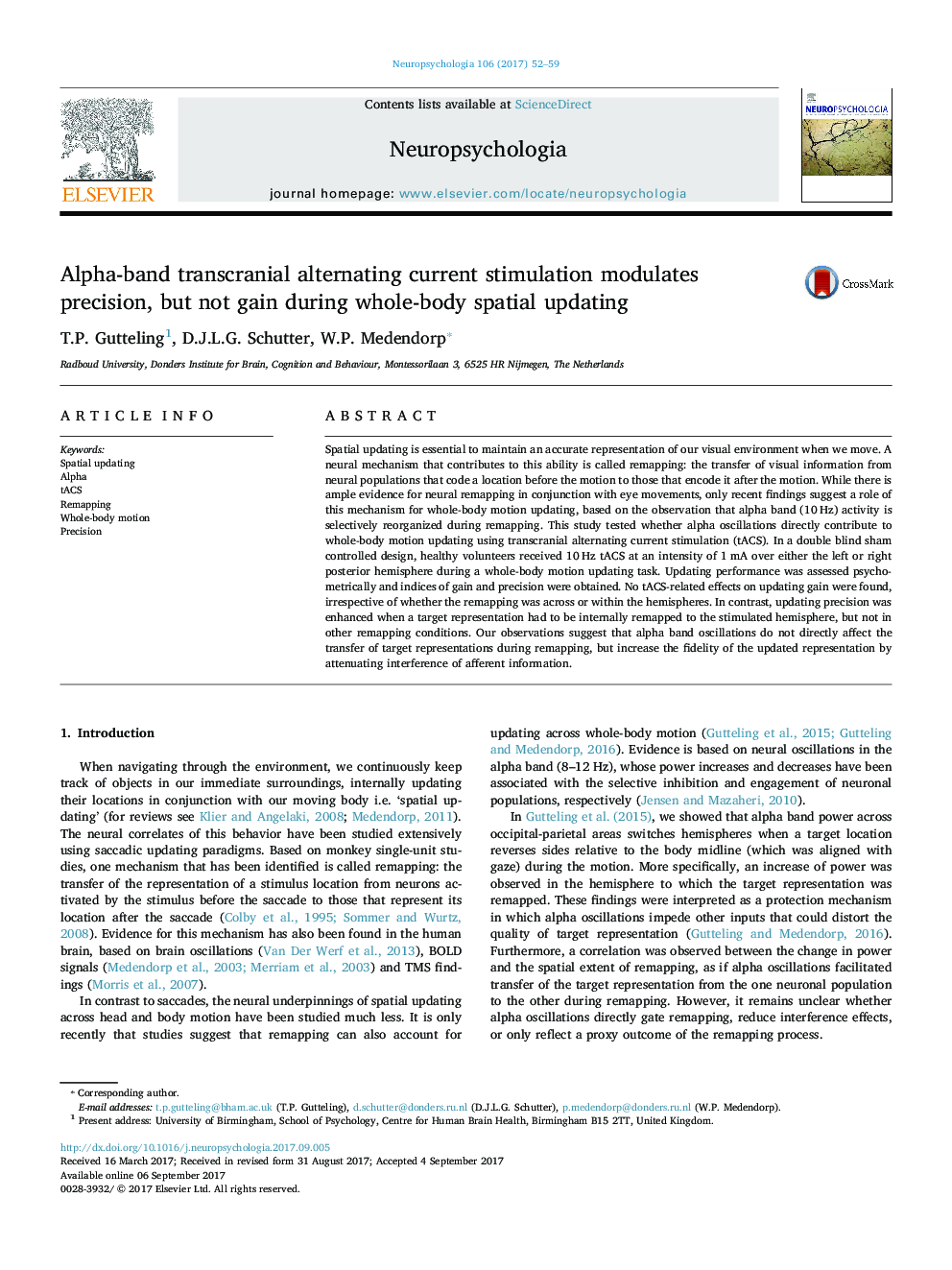| Article ID | Journal | Published Year | Pages | File Type |
|---|---|---|---|---|
| 5045030 | Neuropsychologia | 2017 | 8 Pages |
â¢We combined psychophysics with neural perturbations to study self-motion remapping.â¢Alpha-band alternating current stimulation was applied over parieto-occipital areas.â¢Precision, not gain, was enhanced for remapping to the stimulated hemisphere.â¢Alpha oscillations may reduce interference effects in whole-body spatial updating.
Spatial updating is essential to maintain an accurate representation of our visual environment when we move. A neural mechanism that contributes to this ability is called remapping: the transfer of visual information from neural populations that code a location before the motion to those that encode it after the motion. While there is ample evidence for neural remapping in conjunction with eye movements, only recent findings suggest a role of this mechanism for whole-body motion updating, based on the observation that alpha band (10Â Hz) activity is selectively reorganized during remapping. This study tested whether alpha oscillations directly contribute to whole-body motion updating using transcranial alternating current stimulation (tACS). In a double blind sham controlled design, healthy volunteers received 10Â Hz tACS at an intensity of 1Â mA over either the left or right posterior hemisphere during a whole-body motion updating task. Updating performance was assessed psychometrically and indices of gain and precision were obtained. No tACS-related effects on updating gain were found, irrespective of whether the remapping was across or within the hemispheres. In contrast, updating precision was enhanced when a target representation had to be internally remapped to the stimulated hemisphere, but not in other remapping conditions. Our observations suggest that alpha band oscillations do not directly affect the transfer of target representations during remapping, but increase the fidelity of the updated representation by attenuating interference of afferent information.
